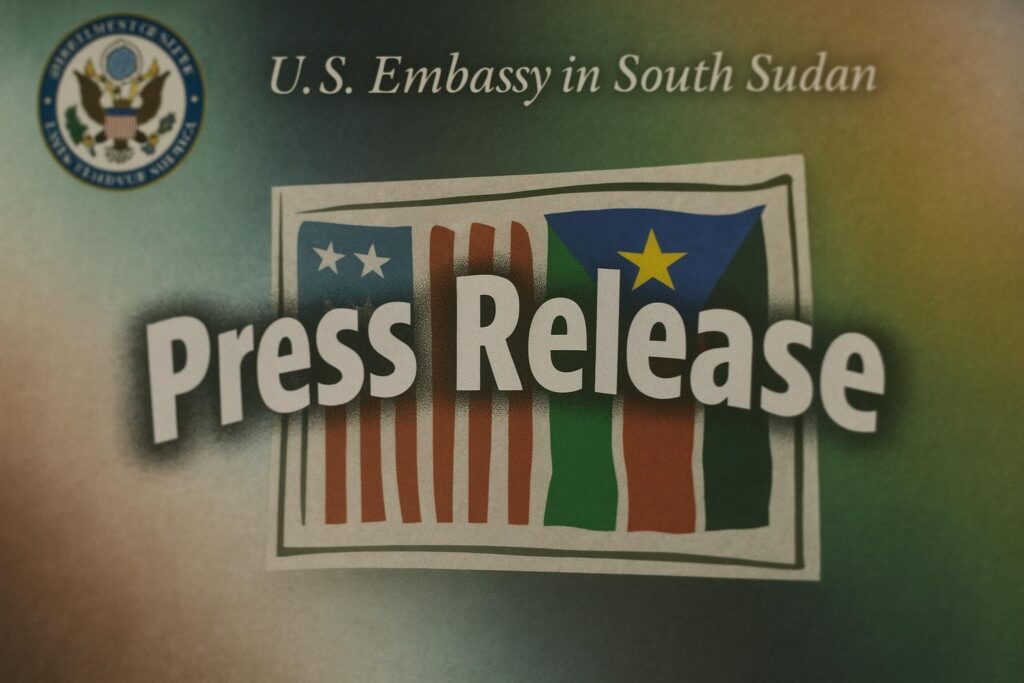U.S. Embassy Alleges Attack on WFP Convoy
United States diplomats in Juba say SSPDF soldiers boarded a World Food Programme barge on 7 September near New Fangak, Jonglei, and removed sacks of life-saving food bound for flood-marooned communities.
The embassy condemns the raid as part of “a worsening pattern of rent-seeking” that endangers civilians already facing record hunger.
Aid Looting Trend Raises Alarm
Although the WFP managed to replace the stolen commodities by 20 September, aid officials warn that every interruption swells logistical costs and shrinks already thin pipelines.
Civil society monitors have tallied repeated incidents in Upper Nile and greater Jonglei where armed actors seize boats, trucks, or fuel, diverting assistance toward personal war chests.
Hunger Indicators Reach Critical Levels
The latest Integrated Food Security Classification projects 83,000 people sliding into ‘catastrophe’, the system’s most severe tier, while 7.7 million—half of South Sudan’s population—could face acute food gaps between April and July 2025.
Floods, localised conflict and macro-economic shocks already constrain planting seasons, amplifying the human cost of any aid disruption.
Demands for Secure Humanitarian Corridors
Washington urges Juba to protect convoys, cut informal fees and discipline officers implicated in harassment so that relief teams can move unescorted along the White Nile corridor.
“Those entrusted with national security must not prey on the vulnerable,” the embassy stressed, warning that donor fatigue grows when goods are siphoned off before reaching families.
National Authorities Urged to Act
Regional analysts note that shielding humanitarian space could also boost confidence in the broader peace process, yet decisive implementation rests with commanders on the ground.
For communities dotted along Jonglei’s wetlands, sustained access corridors may spell the difference between a fragile recovery and another hungry season.


